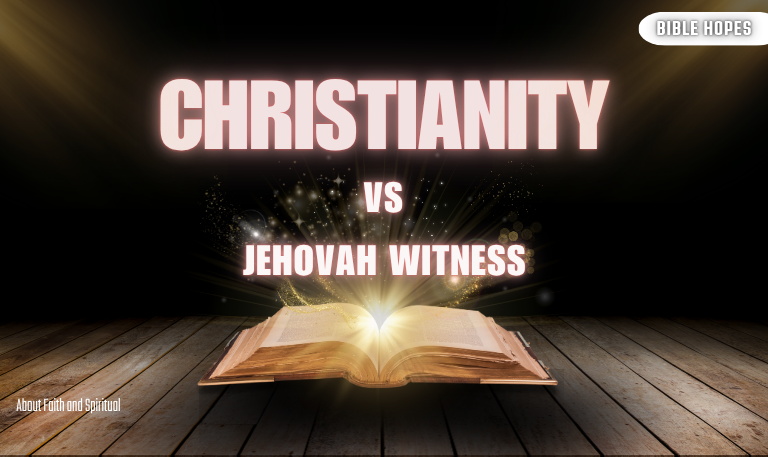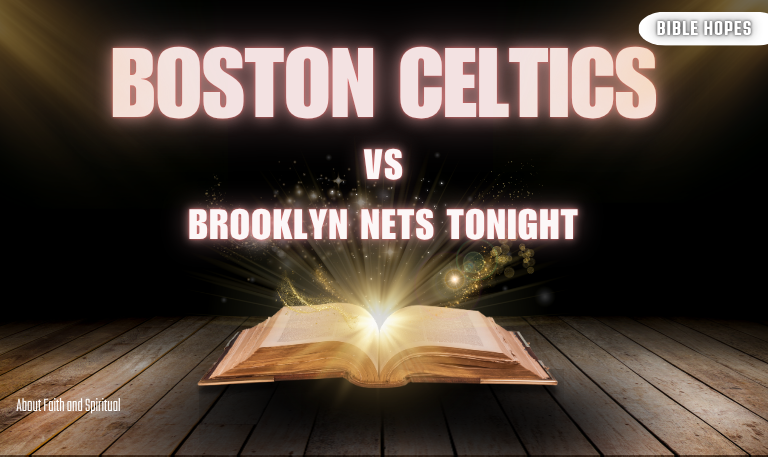Christianity and Jehovah’s Witnesses are often discussed together due to Jehovah’s Witnesses identifying as Christians. However, significant theological, doctrinal, and practical differences set them apart from mainstream Christian denominations. This article provides an in-depth comparison of Christianity vs Jehovah Witness, exploring their origins, core beliefs, worship practices, views on salvation, and much more.
Whether you’re curious about the differences for academic reasons, personal faith exploration, or interfaith dialogue, this guide will equip you with clear, accurate, and respectful insights into these two religious groups.
What Is Christianity?
Christianity is the world’s largest religion with over 2 billion adherents globally. It originated in the 1st century CE, rooted in the teachings of Jesus Christ and his apostles.
Major Branches of Christianity
Roman Catholicism: Led by the Pope, emphasizes tradition and sacraments.
Protestantism: Includes denominations like Baptists, Lutherans, Methodists, focusing on Scripture and faith.
Eastern Orthodoxy: Known for ancient liturgies and traditions.
Core Christian Beliefs
The Trinity: God exists as Father, Son (Jesus Christ), and Holy Spirit — three persons in one essence.
Jesus Christ: Divine Son of God, fully God and fully man, whose death and resurrection provide salvation.
The Bible: Both Old and New Testaments as authoritative scripture.
Salvation: By grace through faith in Jesus Christ, leading to eternal life.
Read Also: Talmud vs Torah
Who Are Jehovah Witnesses?
Jehovah’s Witnesses are a Christian-based religious movement founded in the late 19th century by Charles Taze Russell in the United States. Known for distinctive doctrines and door-to-door evangelism, they have around 8 million members worldwide.
Organization and Structure
Governed centrally by the Governing Body based in Warwick, New York.
Operate through congregations worldwide, focused on evangelism and community support.
Use the New World Translation (NWT) Bible, a version produced by their own translators.
Core Beliefs Comparison
1. God and the Trinity
| Aspect | Christianity | Jehovah’s Witnesses |
|---|---|---|
| Nature of God | One God in three co-equal persons (Father, Son, Holy Spirit). | Strict monotheism; Jehovah is the only true God. Trinity rejected as unbiblical. |
| Trinity Doctrine | Central and foundational doctrine. | Rejected; viewed as a pagan concept. |
2. Jesus Christ
Christianity: Jesus is God incarnate, the second person of the Trinity; fully divine and fully human.
Jehovah’s Witnesses: Jesus is Michael the Archangel, a created being, distinct and subordinate to Jehovah.
3. The Holy Spirit
Christianity: The Holy Spirit is a person of the Godhead, active in the world.
Jehovah’s Witnesses: The Holy Spirit is not a person but God’s impersonal active force.
4. The Bible
Christianity: Uses various translations of the Bible (e.g., NIV, KJV, ESV), including both Old and New Testaments.
Jehovah’s Witnesses: Primarily use the New World Translation, produced by the Watch Tower Society, with some unique translation choices.
Salvation and Afterlife
Christian Perspective
Salvation is a gift from God, received through faith in Jesus Christ.
Emphasizes grace, repentance, and the transformative power of the Holy Spirit.
Afterlife includes Heaven for believers and eternal separation from God (Hell) for unbelievers.
Jehovah’s Witnesses’ Perspective
Salvation requires faith in Jehovah and Jesus, obedience to God’s laws, and active participation in Kingdom preaching.
Believe only 144,000 anointed ones go to Heaven; others hope for resurrection on a paradise Earth.
Deny the existence of Hell as eternal torment; instead, believe in annihilation or unconscious death.
Worship and Practices
Christianity
Worship varies widely: traditional liturgy, contemporary services, sacraments such as baptism and communion.
Celebrates major holidays like Christmas and Easter.
Jehovah’s Witnesses
Regular meetings at Kingdom Halls include Bible study and singing.
Known for door-to-door evangelism.
Do not celebrate holidays such as Christmas, Easter, or birthdays due to their perceived pagan origins.
Eschatology (End Times)
| Aspect | Christianity | Jehovah’s Witnesses |
|---|---|---|
| Second Coming of Christ | Future event, Jesus returns visibly and gloriously. | Already happened invisibly in 1914. |
| Armageddon | Final battle between good and evil at Christ’s return. | Literal battle where Jehovah’s forces destroy evil. |
| Millennium | 1000-year reign of Christ on Earth. | Believed in a future earthly paradise for faithful Witnesses. |
Organizational Structure and Authority
Christianity: Governance varies; from centralized authority (Catholicism) to congregational independence (some Protestant churches).
Jehovah’s Witnesses: Highly centralized, with the Governing Body dictating doctrine and practice.
Holidays and Celebrations
Christianity: Celebrates religious holidays tied to Jesus’ birth, resurrection, and saints’ days.
Jehovah’s Witnesses: Reject traditional Christian holidays; commemorate only the annual Memorial of Christ’s death.
Views on Blood Transfusions and Medical Ethics
Christianity: Diverse views, most accept blood transfusions as a medical necessity.
Jehovah’s Witnesses: Prohibit blood transfusions based on biblical interpretation; advocate alternatives, which can be controversial medically.
Role of Women
Christianity: Roles vary; some denominations ordain women as clergy; others restrict certain roles.
Jehovah’s Witnesses: Women cannot serve as elders or ministers; expected to maintain traditional family roles.
Evangelism and Missionary Work
Christianity: Missionary work through churches, organizations, and personal evangelism.
Jehovah’s Witnesses: Well-known for systematic, global door-to-door preaching campaigns.
Social and Political Stances
Christianity: Varied political engagement depending on denomination.
Jehovah’s Witnesses: Maintain strict political neutrality; refuse to vote or participate in nationalistic events.
Criticisms and Controversies
Christianity: Criticized historically for corruption, schisms, and doctrinal disagreements.
Jehovah’s Witnesses: Criticized for shunning practices, strict control, medical refusals, and their exclusivist claims.
Read Also: Atheism Vs Theism
Similarities Between Christianity and Jehovah’s Witnesses
Shared belief in one God (Jehovah).
Acceptance of Jesus Christ’s role in salvation (though defined differently).
Use the Bible as sacred scripture.
Emphasis on moral living and evangelism.
Summary of Key Differences
| Topic | Christianity | Jehovah’s Witnesses |
|---|---|---|
| Trinity | Accepted | Rejected |
| Jesus’ Nature | Fully God and fully man | Created being, Michael the Archangel |
| Holy Spirit | Person of Trinity | God’s active force (not a person) |
| Afterlife | Heaven and Hell | 144,000 to Heaven; others earthly paradise; no hellfire |
| Holidays | Celebrate Christmas, Easter | Reject holidays, observe only Memorial |
| Blood Transfusions | Accepted | Rejected |
| Political Involvement | Varies by denomination | Strictly neutral |
How to Discuss Christianity and Jehovah’s Witnesses Respectfully
Approach conversations with openness and respect.
Understand their unique doctrines before engaging.
Avoid aggressive debates; focus on dialogue.
Recognize the shared values and faith in God.
Personal Stories and Testimonials
Many former Jehovah’s Witnesses recount the challenges of leaving the faith due to doctrinal disagreements or social pressures. Christians often emphasize the love and grace available through faith in Christ.
Christianity Vs Jehovah Witness FAQs
Q:What are the main differences between Jehovah’s Witnesses and other Christians?
A: Jehovah’s Witnesses reject the Trinity, believe Jesus is Michael the Archangel, reject traditional holidays, and do not accept blood transfusions, differing significantly in doctrine and practice.
Q: Do Jehovah’s Witnesses consider themselves Christians?
A: Yes, they identify as Christians but have distinct beliefs separating them from mainstream Christian denominations.
Q: Why do Jehovah’s Witnesses reject the Trinity?
A: They believe the doctrine of the Trinity is unbiblical and originated from paganism, emphasizing strict monotheism.
Q: What is the New World Translation Bible?
A: It is the Bible translation produced and used by Jehovah’s Witnesses, known for certain unique translation choices aligning with their doctrines.
Q: How do Jehovah’s Witnesses view Jesus?
A: They view Jesus as a created being, specifically Michael the Archangel, not equal to God.
Q: Can Jehovah’s Witnesses celebrate Christmas and Easter?
A: No, they reject these holidays due to their non-biblical origins and associations with pagan traditions.
Q: What happens if a Jehovah’s Witness breaks the rules?
A: They may face disciplinary actions including disfellowshipping (excommunication), which involves shunning by the community.
Q: How do Jehovah’s Witnesses evangelize?
A: Primarily through systematic door-to-door preaching and distributing literature.
Q: Are Jehovah’s Witnesses considered a cult?
A: This term is controversial; some scholars and critics label them as such due to their exclusivist beliefs and organizational control, but members consider themselves a legitimate Christian denomination.
Q: How does salvation differ between Christianity and Jehovah’s Witnesses?
A: Christianity emphasizes salvation by grace through faith in Jesus Christ alone, while Jehovah’s Witnesses emphasize faith, works, obedience, and participation in Kingdom preaching.
Conclusion
Understanding the differences and similarities between Christianity and Jehovah Witnesses is essential for respectful dialogue and informed personal exploration. While Jehovah’s Witnesses share some foundational Christian beliefs—such as faith in Jesus and reliance on the Bible—their unique doctrines, including rejection of the Trinity, distinctive views on Jesus, salvation, and worship practices, clearly set them apart from mainstream Christianity.



![15 Pink Bible Verses | Discover Meaning, Love [2025 Guide] 5 15-Pink-Bible-Verses-Discover-Meaning,-Love-[2025-Guide]](https://biblehopes.com/wp-content/uploads/2025/05/15-Pink-Bible-Verses-Discover-Meaning-Love-2025-Guide.png)